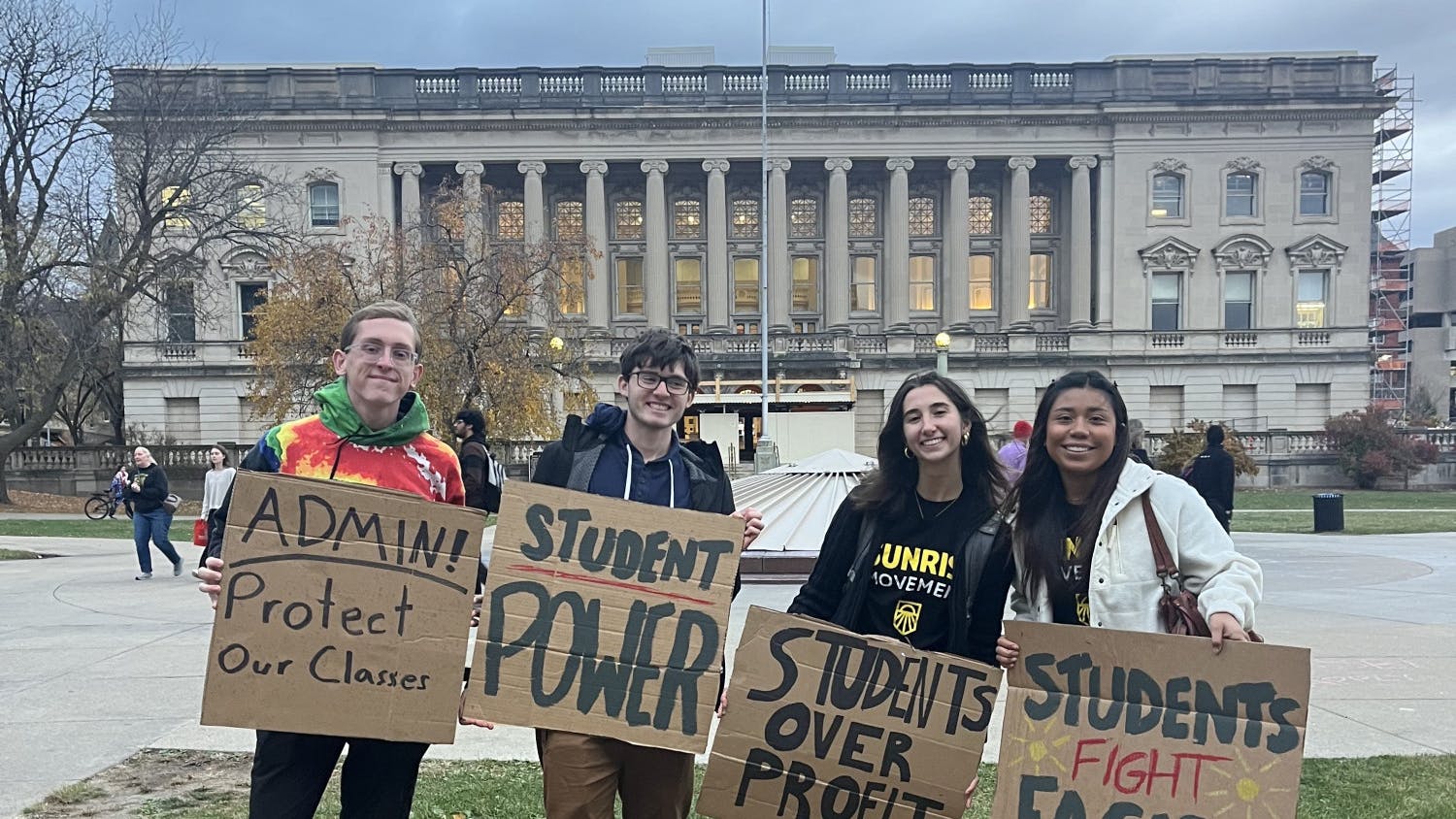Any fan of useless statistics has likely visited Facebook's 'Pulse''??which uses aggregate data and other computer voodoo to calculate the popularity of interests, music, movies and groups of college students from schools across the United States. It makes these calculations from a 'statistically reliable' source'the information procrastinating college students choose to list in their profiles.
Despite the fact that Pulse can tell us 9.6 percent more Wisconsin students listed 'Old School' rather than 'Wedding Crashers' as a favorite film, Pulse has the problem that popular culture as a whole seems to have: it's volatile. It changes on the whims of those who comprise its membership.
For example, take politics on the Pulse. From its inception to about two weeks ago, Pulse listed the College Republicans as the No. 2 student organization on the UW-Madison campus.
A visit to the Republican Issues Night meeting of the College Republicans proved the safe assumption that there are plenty of assuredly active Republican students on this campus, but the idea that they outnumber the active College Democrats on a liberal campus seemed puzzling.
David Lapidus, Dane County Board candidate, proposed a possible answer. Speaking at the College Republicans meeting in reference to some of his opponents in his upcoming election, he suggested that liberals on this campus are too apathetic toward their politics'??a failing he believes breeds unrealistic candidates.
Could apathy be the solution to the puzzle? Perhaps people just do not care about politics enough to join up and work to get Democrats elected, hence the low membership of the College Democrats. That seemed fairly oversimplified, especially since after that night, the College Democrats shot up to No. 2 on Pulse, pushing the College Republicans down to No. 4.
It might have been that the College Democrats' Issues Night was going on that evening. Perhaps some liberals, ignited by the meeting's discussion, went home and placed their newfound enthusiasm for College Democrats proudly on their profiles, resulting in a huge popularity boost. Brian Shactman, chair of the College Democrats, explained: 'There's been some increased interest because of the upcoming elections this semester, so a lot of new people turned up at the last meeting.' As far as the College Democrats' sudden surge in popularity on Facebook, Shactman laughed, 'Well, it's something for us to brag about, but I wouldn't read too much into it. It's just Facebook.'
It could not be said any better. Pulse, like most measurements of trends in pop culture, is just too unstable to come close to a verifiable measurement. It is less an explanation of how things are than an expression of what is on people's minds.
If people are thinking about anything from the election of a member of their political party to their new favorite movie, they express their thoughts through outlets like Facebook. The aggregate effect is that measurements like Pulse show what is on most people's minds on a strictly day-to-day basis. No one should interpret such measures of campus culture as any more than that. It is when these winds of pop culture are called forward as direct evidence or support for action, assumption or policy that even the best leaders are led astray. It will always be vital for politicians, local and abroad, to know when to heed and when to ignore what the popular kids are saying.





